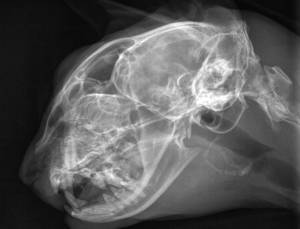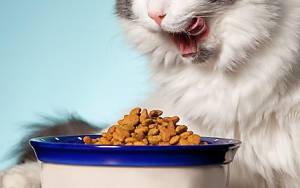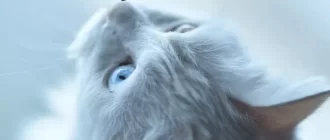If you’re a cat owner, you’ve probably witnessed your furry friend drooling at some point. And while it might seem harmless, excessive drooling could potentially be a sign of health issues.
In this blog post, we’ll explore all the potential causes of cat drooling and what you can do to help your pet if necessary. Whether it’s just an innocent habit or a sign of something more serious, it’s always important to keep an eye on your kitty’s behavior and seek professional help if needed.
Introduction to cat drooling
When it comes to cats, drooling can be either normal or abnormal. Some cats drool when they are happy, excited, or relaxed while others may drool because they are experiencing discomfort, pain, or illness. In this blog, we explore all the causes of cat drooling.
From dental problems to internal issues, there are many reasons why your cat might be drooling excessively. Sometimes drooling can be a sign of a minor problem, while other times it can indicate a more serious health concern.
So, keep reading to learn about the various causes of cat drooling and what you can do to help your furry feline feel comfortable and healthy.
Excitement, fear, and nausea as causes of drooling
Excitement, fear, and nausea are all potential causes of cat drooling. As we discussed earlier, cats may drool when they are very excited, upset, or fearful. Similarly, nausea and the apprehension that precedes vomiting often result in drooling. It’s important to note that emotional causes for cat drooling can also be linked to times of extreme anxiety or stress. While it’s normal for cats to drool when they’re happy or excited, excessive drooling can also be a sign of dental problems, injury, or ingestion of toxic substances.
Pain and inflammation in cats
Pain and inflammation can also cause cats to drool excessively. Cats suffering from stomatitis, an inflammation of the mouth and lips, may drool due to the discomfort they are experiencing. Additionally, mouth disease, tooth decay, and tartar buildup can cause irritation and pain leading to drooling. It’s important to note that cats are good at hiding their discomfort, so sudden drooling should not be ignored.
Potential internal problems causing drooling
One possible cause of excessive drooling in cats are potential internal problems. While many drooling cases can be traced to dental and mouth issues, sudden onset of drooling may be an indication of a more serious medical problem. This can include nausea and sickness due to illness, or an internal injury or inflammation.
Cats are known for their ability to hide discomfort, so noticing excessive drooling early on can be an important factor in addressing any underlying medical conditions before they become more serious. If a cat is drooling excessively without any apparent explanation, it’s best to bring them in for veterinary attention to rule out any potential internal problems causing this behavior.
Dental disease as a common cause
Dental disease is a common cause of cat drooling and can affect up to 85% of cats over 3 years of age. Tartar buildup and gum disease can cause irritation in your cat’s mouth, leading to excess drooling. Spotting the early signs of dental disease, such as gingivitis, can help prevent further discomfort for your feline friend.
Additionally, severe gum disease can result in abscesses and rotting teeth, which may also cause drooling in cats. If you notice sudden drooling or changes in behavior, it’s crucial to consult with a veterinarian to prevent potential health issues.
Remember, regular dental checkups and good oral hygiene can help prevent dental disease and keep your cat’s mouth healthy.
Injury and ingestion of toxic substances
When it comes to the potential causes of cat drooling, injury and ingestion of toxic substances are two that should never be ignored. Poisonous plants or chemicals can have serious impacts on a cat’s health and cause excessive salivation.
It’s important for cat owners to be vigilant about their pet’s surroundings, as cats are curious creatures and may accidentally ingest something harmful.
Cats’ ability to hide discomfort
As pet owners, it’s important to understand that cats have a natural instinct to hide their discomfort. In fact, it’s quite common for cats to mask their pain, especially when it comes to dental disease or injury. This is why it’s crucial for pet owners to pay close attention to any changes in behavior or appearance, such as drooling, in order to identify potential health issues.
Even though cats may seem fine on the surface, it’s important to remember that they can still be experiencing chronic pain or inflammation in their mouths. As with any pet, it’s always best to seek advice from a veterinarian if there is any concern about a cat’s health or behavior.
Tartar buildup and mouth disease
As previously discussed, dental disease is a common cause of drooling in cats, and tartar buildup and mouth disease are key players in this issue. Tartar, a bacterial film that can accumulate on teeth, can lead to gum disease and inflammation, causing discomfort and slobbery behavior.
Additionally, resorptive tooth disease, which causes loss of enamel coating on teeth, can also contribute to drooling.
It’s important for cat owners to regularly check their feline friend’s teeth and gums to look for signs of tartar buildup, inflammation, or other dental issues. Preventative care, such as teeth cleaning and regular veterinary check-ups, can help ward off dental disease and related drooling. Keeping your cat’s mouth healthy is essential for their overall well-being and happiness.
Periodontal disease affecting the mouth
Periodontal disease is one of the most common oral diseases in cats and can affect the gums, teeth, and bones that support them. The disease is caused by bacterial growth in the mouth, which can lead to inflammation and infection.
This inflammation can cause discomfort and pain, which may result in excessive drooling. In severe cases, periodontal disease can lead to tooth loss if left untreated. The buildup of tartar near the gumline is a common cause of periodontal disease in cats.
Trauma and other health causes of cat drooling
In addition to the various causes mentioned earlier, trauma and other health issues can also lead to cat drooling. Cats could accidentally injure their mouths or jaws while playing, or they could get into fights with other cats, resulting in painful bites and scratches.
Conclusion
So, why do cats drool? There are actually multiple reasons why your feline companion might be slobbering all over themselves.






